“I didn’t realise what falling in love with a farmer would mean for my life’’: City slicker Stephanie Trethewey shares tragedies and triumphs endured by rural mums across Australia in a new book.
When Stephanie Trethewey received an email from a senior publisher at Allen & Unwin two years ago asking if she’d like to write a book, she initially thought the message was spam.
“I thought it was a scam, a joke,’’ the 33-year-old admits.
But the offer was legitimate, and Trethewey soon found herself embarking on a “deeply personal” project which turned out to be “the hardest professional project of my life”, as she also attempted to maintain a thriving cattle farm, keep her online not-for-profit organisation running, and raise her two young children.
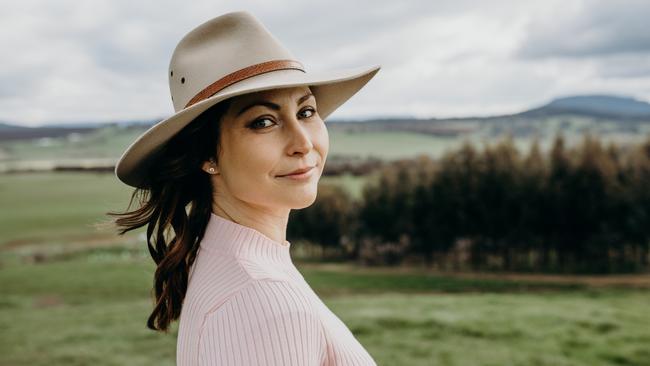
But Trethewey says the “late nights”, “self-doubt”, “frustration” and “joy” had been worthwhile, with her newly-released book, Motherland, serving as somewhat of a saviour for the former city-slicker turned farmer, while also providing a beacon of hope to other rural women struggling with the challenges and isolation of parenting.
“I don’t think I was much fun to be around at times as I struggled to wear and juggle all the hats of mum, wife, business owner, household manager and wannabe author on a very tight deadline,’’ Trethewey says.
“My husband, Sam, was probably the most relieved person of all when I handed in my manuscript.’’
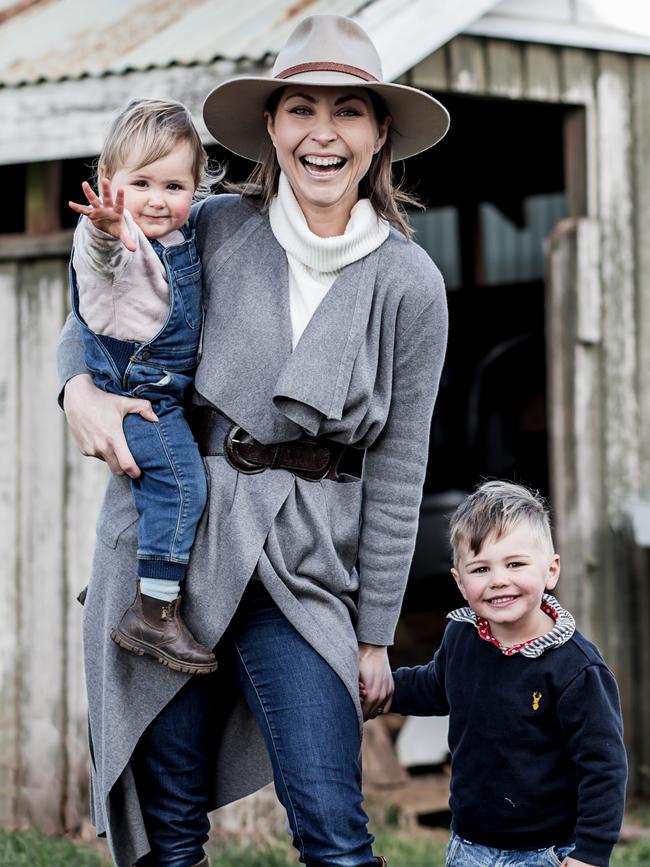
Motherland brings together the incredible stories of 14 rural mums across Australia, offering an unfiltered insight into the tragedies and triumphs that have shaped their lives on the land.
The book has been hailed as “raw” and “real” and “a love letter to rural Australia” that is guaranteed to stir up “a whirlwind of emotions” among readers.
The idea for the book grew from Trethewey’s podcast of the same name, which she started in late 2019.
The former TV journalist struggled to cope with the loneliness she felt when she traded her high heels for muddy farm boots and moved to regional Tasmania to start a new life with her farmer husband and their son Elliot, who was then just six months old.
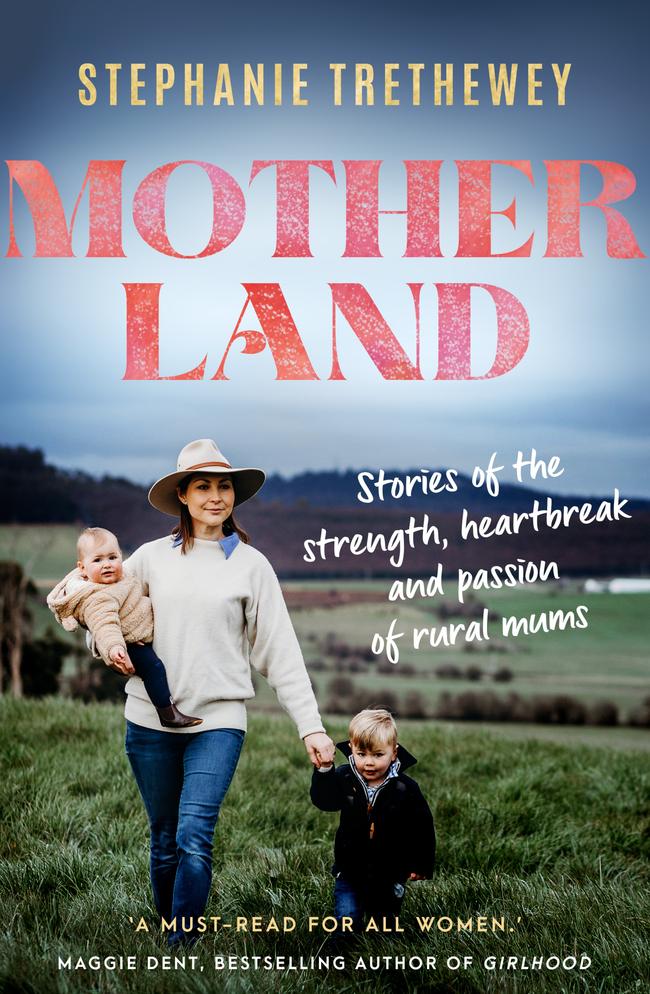
Trethewey didn’t expect the transition would be easy, although she says TV shows like Farmer Wants A Wife, Gourmet Farmer and River Cottage Australia had given her some romantic – yet unrealistic ideals – about what farm life might be like.
“I didn’t realise what meeting a farmer and falling in love with a farmer would mean for my life,’’ she reveals. Trethewey had been working as a broadcast journalist – she has worked for Channel 9 and Channel 7 on some of the country’s biggest news and current affairs programs during her career – when she met her future husband at an agriculture conference in Rockhampton in 2013.
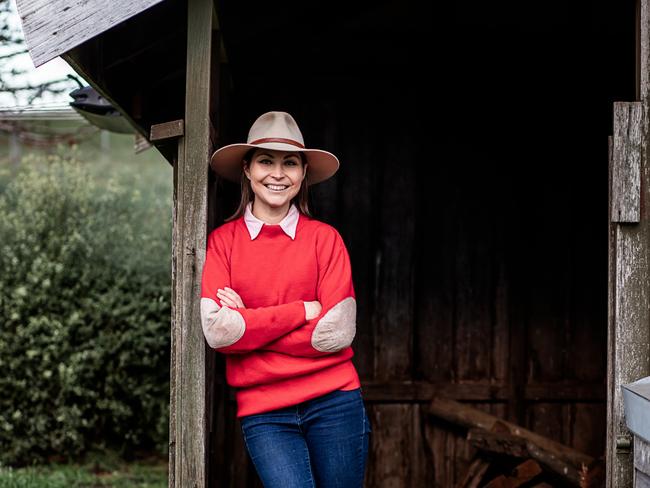
Then just 24, Trethewey had no idea that a quiet day in Channel 7’s Central Queensland newsroom – which led her to the conference in a desperate bid to unearth a story to fill an empty spot in the nightly news bulletin – would change the trajectory of her life.
“Thank goodness for that slow news day, as I wouldn’t be where I am if something (big) had hit the news that day,’’ Trethewey says.
“I needed a story and this event was happening … so I went along to this agriculture conference and I locked eyes with this handsome man, who was up there as a guest speaker, and I interviewed him for the 6 o’clock news. So, I got a story and I got a boyfriend. Little did I know that the farming sector – such a foreign industry to me at the time – would eventually consume my life and would have me swapping my stilettos for muddy boots, permanently.’’
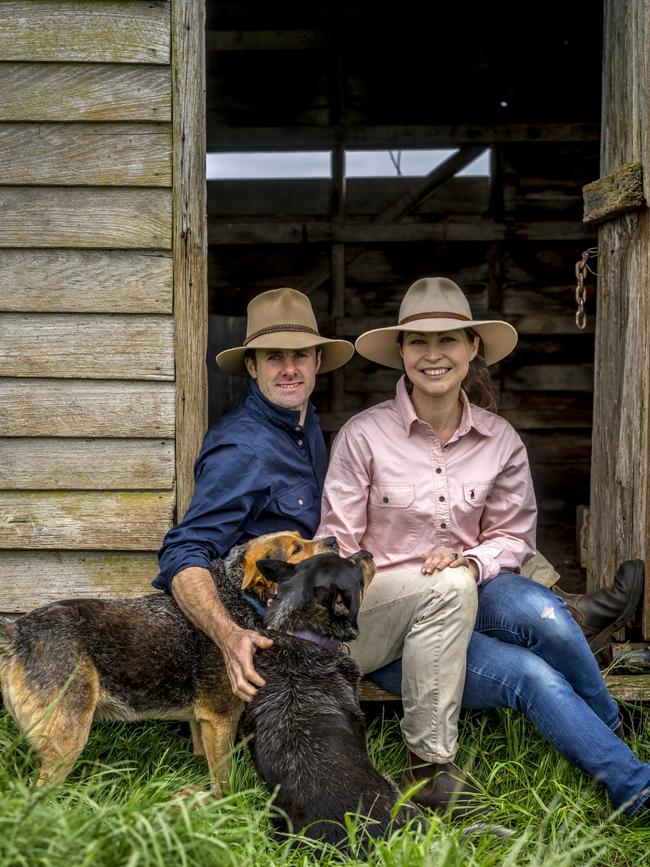
That boyfriend was Sam Trethewey, a third-generation farmer originally from Tasmania. The pair hit it off instantly and a relationship quickly blossomed.
It was by the pool at a resort in Thailand on their honeymoon in late 2017 that the couple first crafted the idea of creating a beef business and moving back to Sam’s home state to live and work.
It was quite a shift in gears for a born and bred Sydney girl “with a thirst for the bright lights of the city and the adrenaline rush of a newsroom” who says “climbing the ladder and doing whatever it took for my reporting career to flourish was my life’s sole purpose”. Trethewey admits she previously “never gave a second thought to life in rural Australia or to the women in it”.
“I was too busy cursing traffic. My world revolved around stake-outs, script deadlines and the stress of live TV,’’ she says in her book.
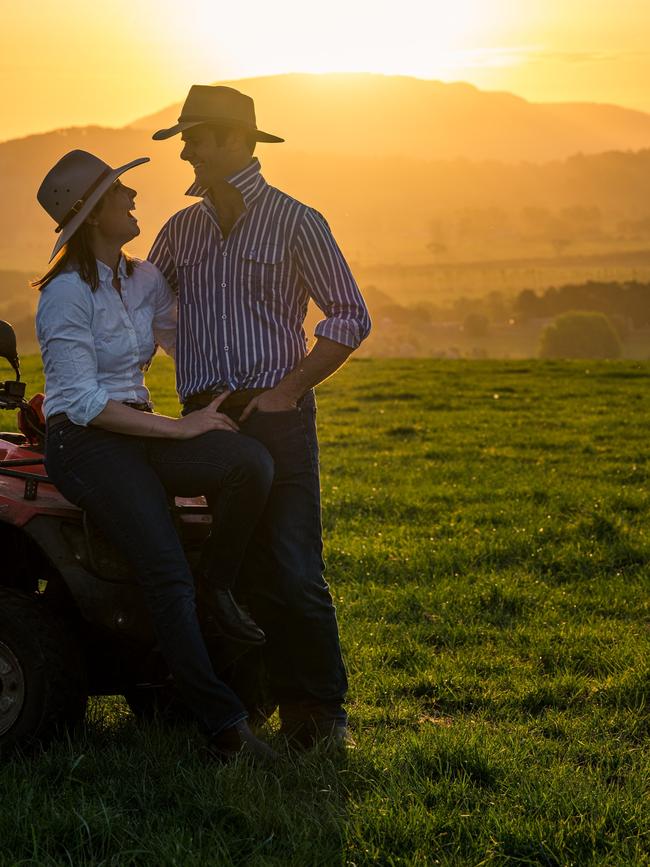
She’d “always gone a million miles and hour” chasing her career goals, and she loved working for A Current Affair in Brisbane and Melbourne, but then realised there was more to life.
“It’s funny because I worked in television for about seven years, and I had always wanted to work for a program like 60 Minutes.
“And then I got a job producing for Sunday Night, which was the rival show, and I remember during my time there – and I wasn’t there that long – that I thought, ‘This is it.’ In my mind I’d made it. I’d chased so many people down the street, I’d produced great stories. But I felt depleted, I’d had enough.’’
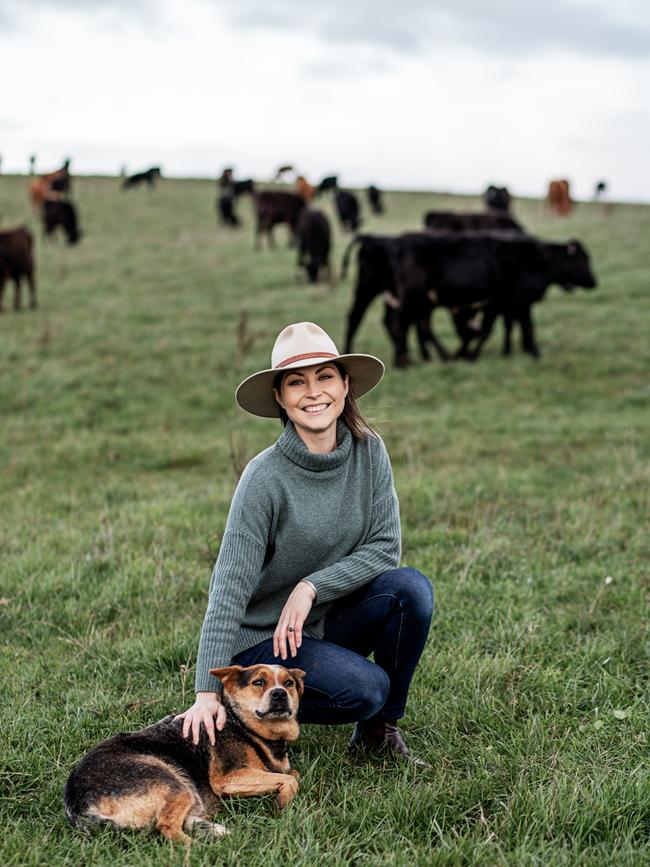
She made the switch to working in corporate communications in Melbourne but increasingly she and Sam, who had been working in the agribusiness sector, felt drawn to Tasmania to start the business they had talked about.
“There was something so romantic and enticing about swapping the city for the country,’’ Trethewey recalls in her book.
They found the perfect property at Dunorlan, near Deloraine, for their new business, Tasmanian Agricultural Company – known as Tas Ag Co – rearing and marketing Wagyu beef cattle with a strong focus on sustainability.
And when their son Elliot was six months old they embarked on a new life in Tasmania.
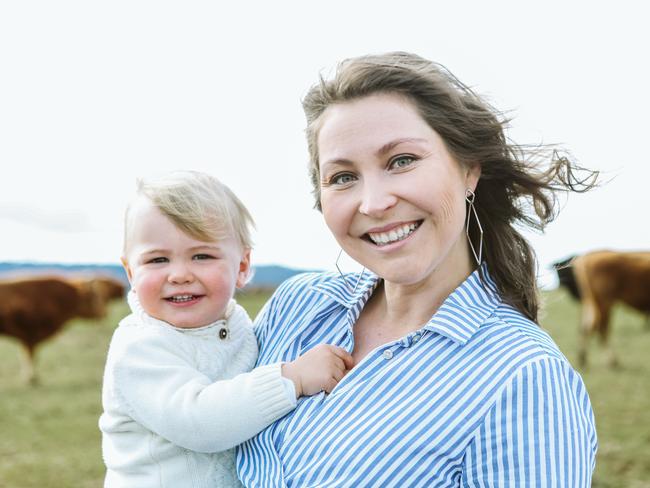
“We packed up our life in Melbourne and we hopped on the Spirit of Tasmania and made the journey over here with two cars and two blue heelers, and everything changed the moment we hit the ground in Tassie,’’ Trethewey recalls.
Being a new mum was hard enough. But being a new mum in a foreign state away from family and friends, on a farm in a regional area with limited resources, was even harder.
“Motherhood hit me like a ton of bricks,’’ Trethewey admits. “While I’d spent my career fearlessly confronting criminals and chasing conman after conman, those encounters had nothing on the challenges I faced as a new mum. In the early months I spent many hours on the bathroom floor sobbing as I struggled to connect with my inconsolable, colicky newborn.
“The sleep deprivation I experienced with a baby who woke up every 45 minutes throughout the night was excruciating, and the initial impact on the relationship with my husband was heart-wrenching as we went from a spontaneous, madly-in-love couple to two exhausted people passing each other like ships in the night.
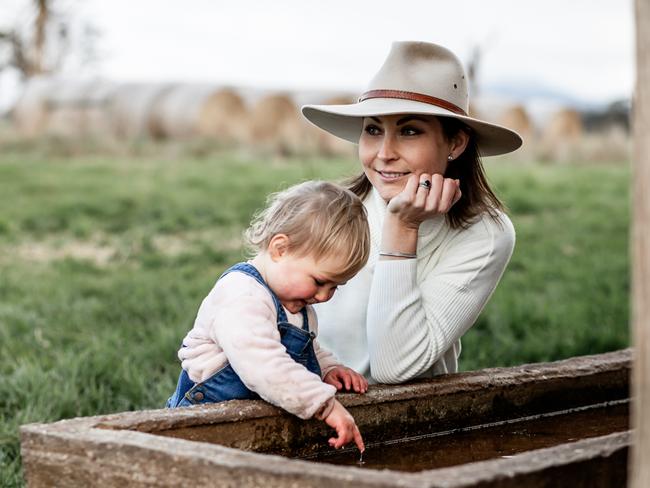
“For my entire life I’d been in control. I was in the driver’s seat when it came to my career and that in many ways had shaped my identity. But when I became a mother, I lost control.’’
She hoped farm life and the picturesque setting of rural Tasmania would be her “ticket out of hell”, with a fresh start in a new environment. But things just got tougher, as her husband was busy with the farm seven days a week and she spent a lot of time at home alone with her young son.
“After Sam and I became parents for the first time, I have no doubt I suffered from post-natal depression,’’ Trethewey says.
“I found it so hard adjusting to life as a mum, I really feel like I lost me, I lost my identity and it just spiralled. And I remember Sam would leave in the mornings (to work on the farm) and I would just burst into tears, and I just thought how lucky he was to be free to go to work and meanwhile I felt so alone at home with this baby.
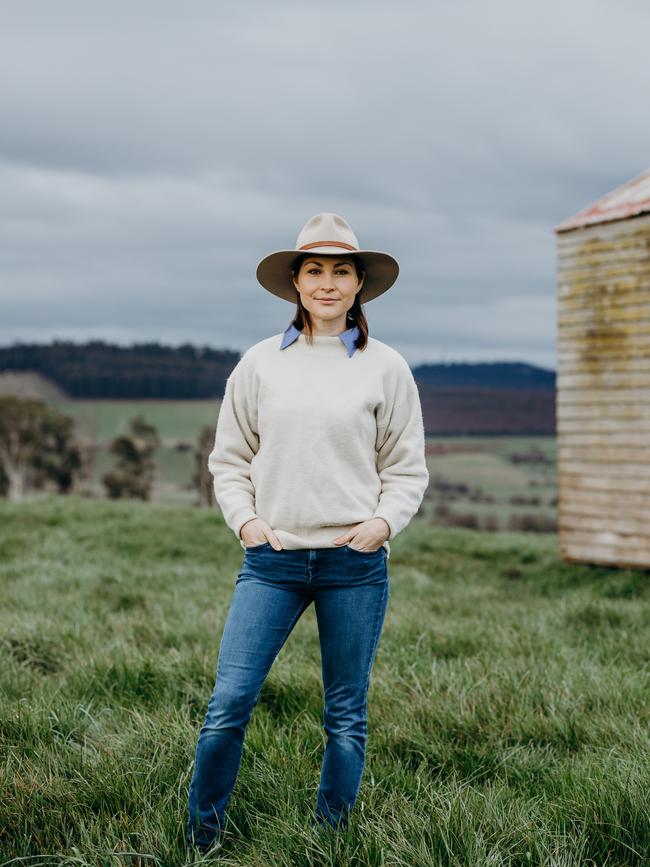
“As weeks turned into months, the sinking feeling of loneliness in the pit of my stomach just wouldn’t go away.
“I finally realised that deep down what I really yearned for was to connect with other rural mums. I wanted to know that, despite how isolated I felt, I wasn’t alone, that I wasn’t failing, and that some of the challenges I was facing as a mum on the land were understandable.’’
It was from the depths of this despair that Trethewey’s podcast, Motherland Australia, was born. And suddenly, sitting in her home on a farm in rural Tasmania, she found herself in her element again.
That podcast, which shares “real, raw and unbelievable stories of motherhood told by women on the land” has since had half a million downloads and is just about to hit 170 episodes.
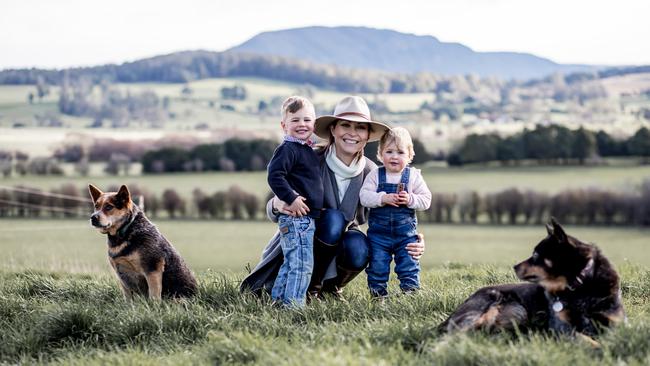
After Trethewey gave birth to her daughter, Evie, the overwhelmed mother-of-two began searching online for some sort of mothers’ group she could join to connect with other rural mums, but nothing existed.
And that led Trethewey to create Motherland Village, an online rural mothers’ group program.
The program connects mums, who have children of all ages, across Australia, in small groups, encouraging them to get to know each other via a series of video calls and weekly activities, facilitated by Trethewey or one of Motherland Australia’s other staff, over a six-week period. At the end of that period, once relationships have been established, the women continue to communicate in their own independent mothers’ group.
The program has been credited with improving mental health among rural women, and its success led to Trethewey being crowned the 2022 AgriFutures Rural Women’s Award winner.
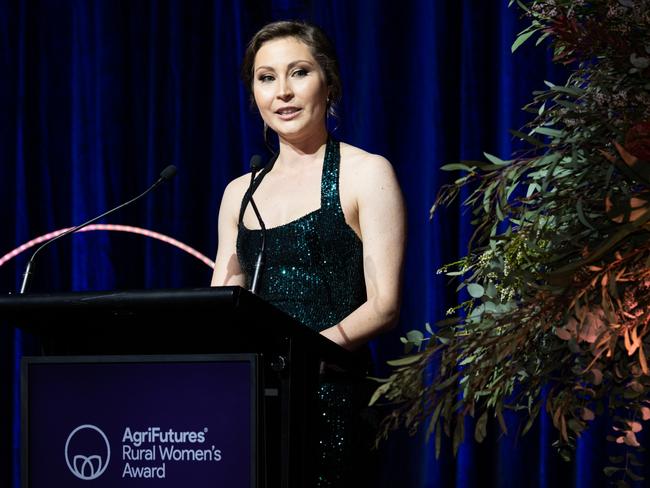
Now she’s proud to release her Motherland book, bringing together the stories of 14 rural mums from all parts of Australia (including Tasmania). These range from the heartbreaking yet inspirational tales of women who have lost their husbands to suicide or farming accidents, to those who have escaped domestic violence, who have dealt with the challenges of infertility and miscarriage, who have rebuilt their lives after bushfires and drought, as well as women smashing cultural and gender stereotypes in a traditionally male-dominated industry, all while dealing with the unique challenges of raising children in remote locations.
The book has attracted praise from high-profile Australian women including author and parenting guru Maggie Dent, farmer and Olympic swimmer Giaan Rooney, Getaway presenter Catriona Rowntree, actor Bridie Carter and author Fleur McDonald.
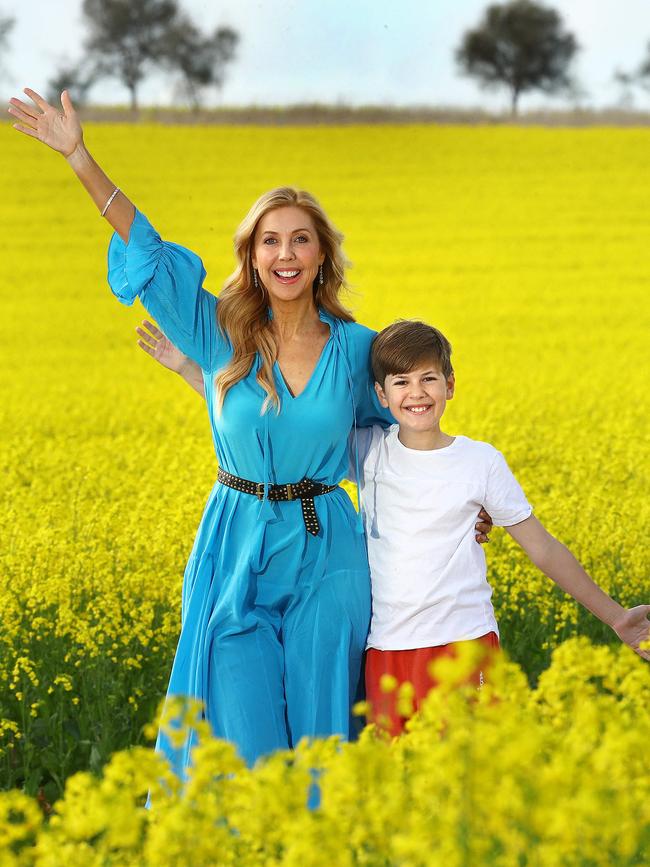
Trethewey hopes the book will help other mums, regardless of where they live, and also cast a spotlight on the varied and inspirational lives and experiences of rural women to help dismantle the farmer’s wife stereotype.
She says rural mums face many additional challenges, whether that’s due to social or geographical isolation, a lack of nearby family support, having limited childcare options and having limited access to adequate medical care and post-natal support in a world where the nearest town or hospital or post office or supermarket could be hours away.
Trethewey says a lot of rural mums don’t feel valued, and she hopes the book will help readers “to appreciate and understand just how valuable rural mums are on the land”.
“I think this is particularly relevant in Tasmania,’’ Trethewey says. “We are such a rural state, the agriculture industry is such a huge part of what makes up Tassie.’’
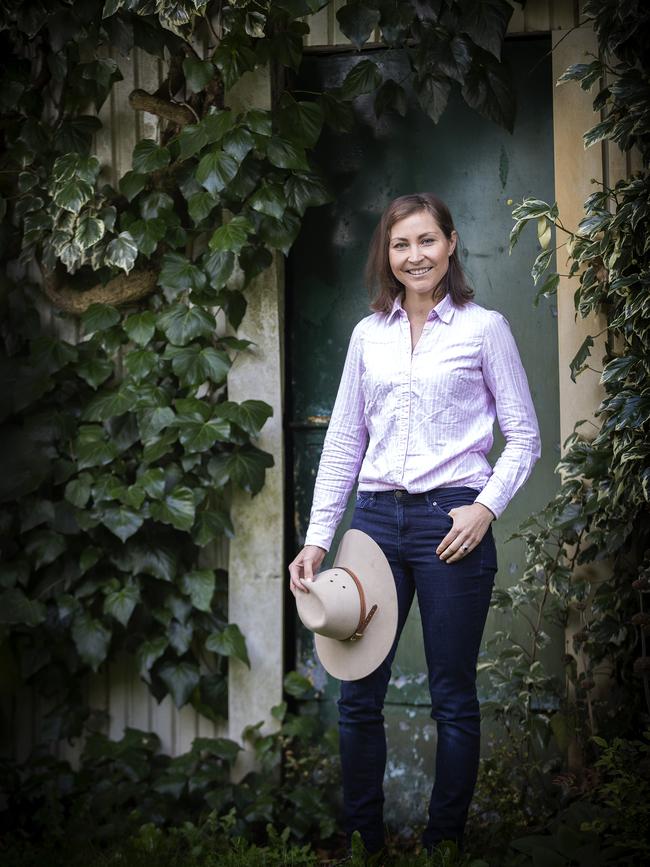
She says there’s a lot of pressure on rural Australians to be seen as resilient, and she doesn’t think the wider community understands just how dire mental health problems in rural areas are.
“When I moved here I thought I had to fit this rural mum stereotype,’’ Trethewey explains.
“I just felt like a square peg in a round hole.’’
“We don’t say ‘she’s an accountant’s wife’, or ‘she’s a dentist’s wife’, so why am I ‘a farmer’s wife’? I’m more than just the wife of a farmer’’.
“I believe rural mothers are some of the most undervalued and undercelebrated women in this country; their stories are diverse and inspiring.’’
Despite plenty of inspiration, Trethewey says penning the book wasn’t easy.
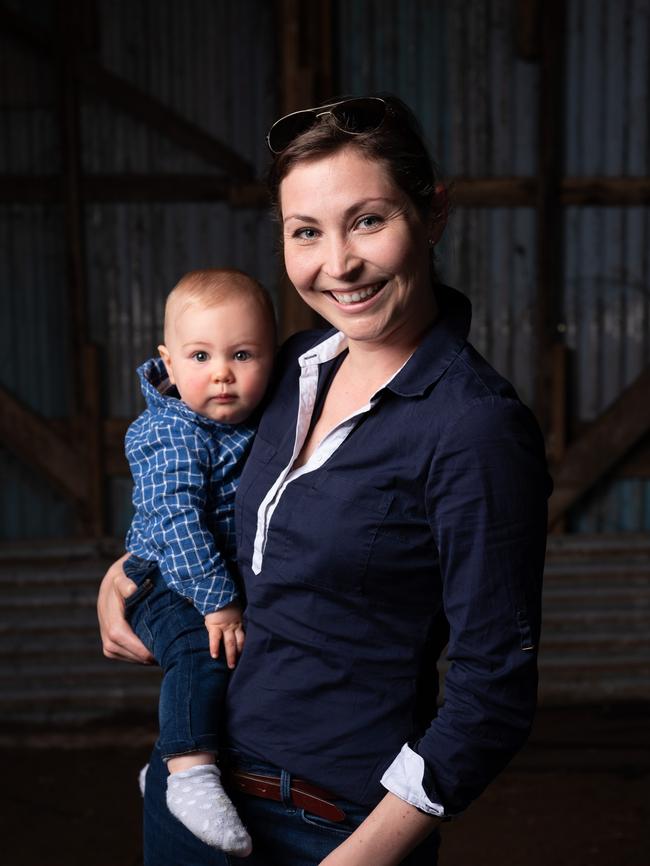
“The fact I’ve managed to write this book is nothing short of miraculous,’’ she says.
“While my journey through motherhood is the very reason it exists, ironically, being a mum is also what made this project near impossible. Because, she says it “turns out penning coherent sentences when you’re exhausted from raising two small humans is no mean feat”.
Trethewey considers the book to be a thank you to the mums who helped her cope through her own tough times, including a devastating miscarriage she suffered in between having Elliot and Evie.
“The rural women I have connected with over the past few years have made me a better mum, a better partner, a better businesswoman and a better me,’’ she says.
“They have opened my eyes to the possibilities of this incredible rural life we are lucky to live and have made each of my challenges as a mum – every phase, and every struggle – less isolating.’’
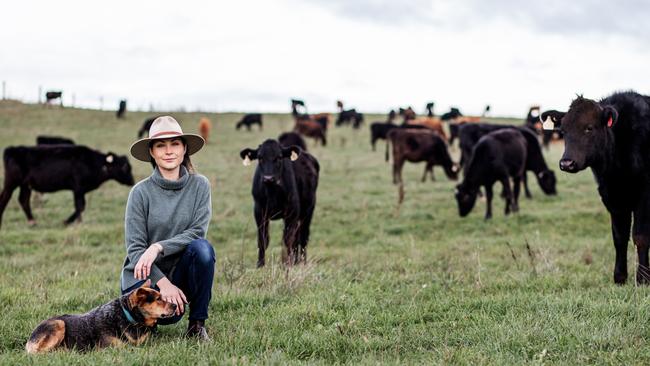
She says she has poured her “heart and soul” into Motherland and doesn’t know where she’d be without it. She has a new-found love for life on the land (the farm runs about 1000 cattle across 400ha) and she considers Tasmania her “forever home”. Her children are thriving – Elliot, now 4, started kindergarten this year and he and Evie, 2, love running around on the farm.
“I love watching them in their work shirts and farm boots, they are so wild and free,’’ Trethewey enthuses.
“It’s the most amazing childhood I could ever have wished for for my kids. We are so lucky every day that we get to raise them here.’’
She can’t wait to tell her children when they’re older that from her struggles as a new parent she was able to do something meaningful to support others.
“It feels very surreal to be talking about this,’’ Trethewey says of her successful podcast, online platform and book.
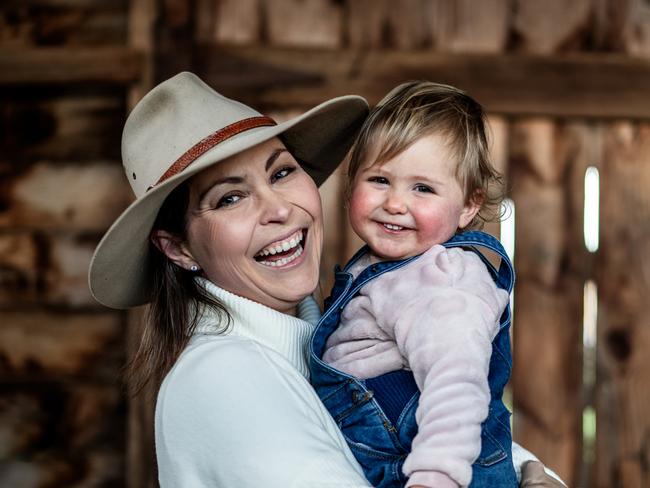
“But at end of day adversity fuels innovation, and Motherland was born out of the darkest of times.
“I can’t wait to tell (Elliot and Evie) one day that I was able to create something really meaningful to help others.’’
And by doing that she has also helped herself.
“Motherland has saved me in so many ways,’’ Trethewey explains.
“Mentally especially, I don’t think I could love this life on the land if I didn’t have Motherland. I think l would still be in a pretty dark place. I think I would still be feeling incredibly lonely. So, Motherland has been my village and it has been my lifeline and it’s so amazing to see what it has done for others. I’m not sure who or where I’d be today without Motherland. It has ignited a fire in my belly and helped me find “me” again.’’
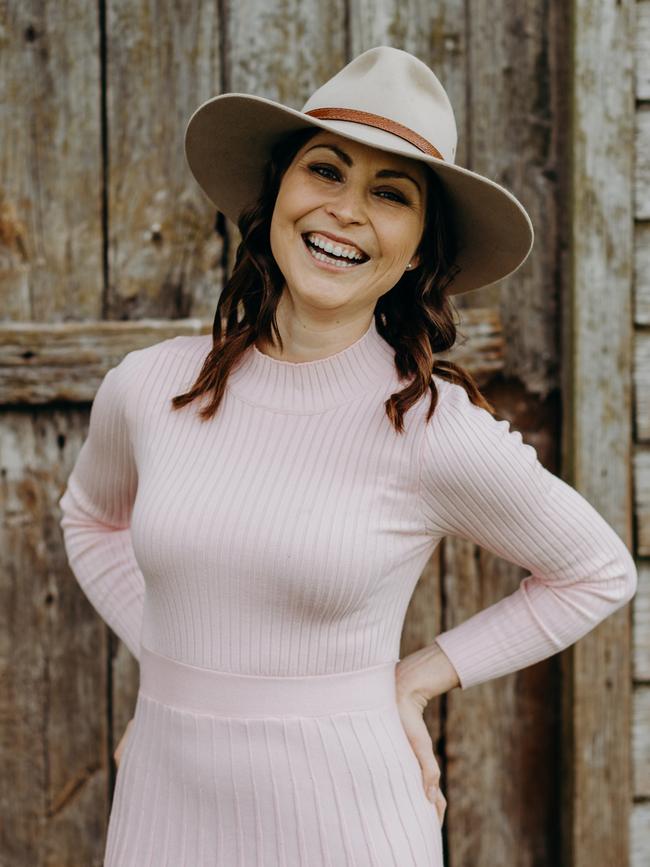
Trethewey says, as a struggling new mum who relocated to Tasmania to live on a farm, she could never have imagined how well things would eventually turn out.
“If you’d told me four or five years ago that I would be where I am now I would have thought you were absolutely joking,’’ she says.
“My city friends still can’t believe that I’m a farmer now and I spend my days wearing muddy boots – not stilettos – so, it’s been a whole new world for me … it’s just so funny how life works out.’’
“Life is busy, and it’s chaotic but I’m happy and I know this is exactly where I’m meant to be.’’
Motherland by Stephanie Trethewey (Allen and Unwin, $34.99) is available now.

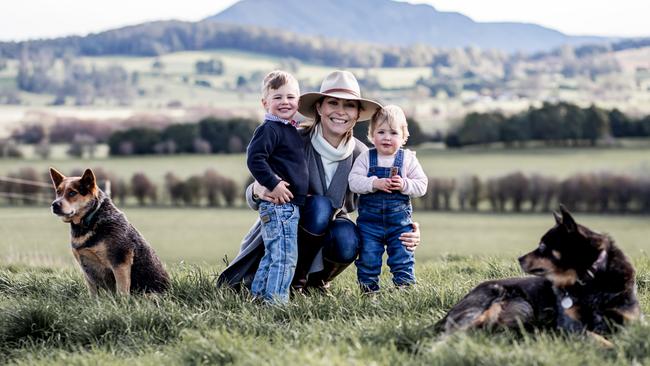
Add your comment to this story
To join the conversation, please log in. Don't have an account? Register
Join the conversation, you are commenting as Logout
Forest tour yields ‘magical’ mushroom experience
Guided by cook and mushroom enthusiast Mic Giuliani, food writer Alix Davis discovered there’s a world of deliciousness living under the carpet of pine needles in the forest near Hobart Airport.
100 must-do Tassie experiences under $100
The cost of living continues to rise, but Tasmanians still want to get out and enjoy life, especially in winter. Find inspiration in our mega list of 100 distinctly Tasmanian things to do for under $100